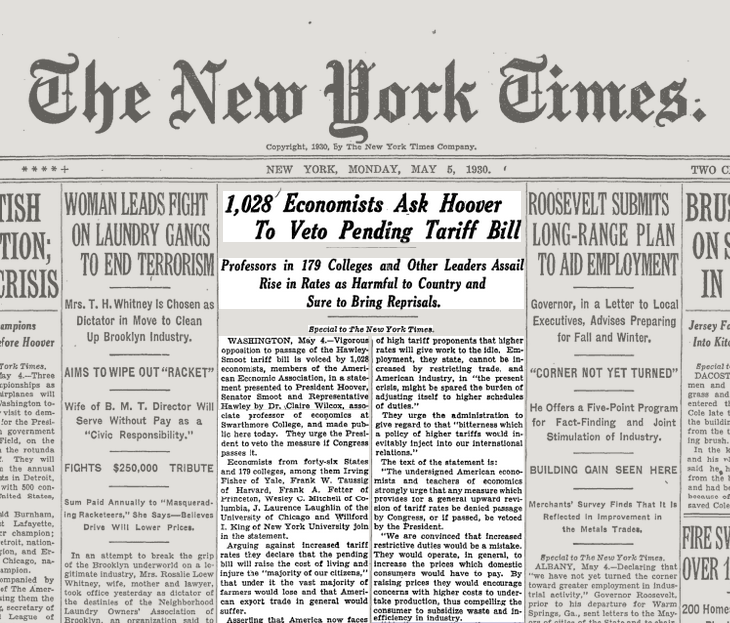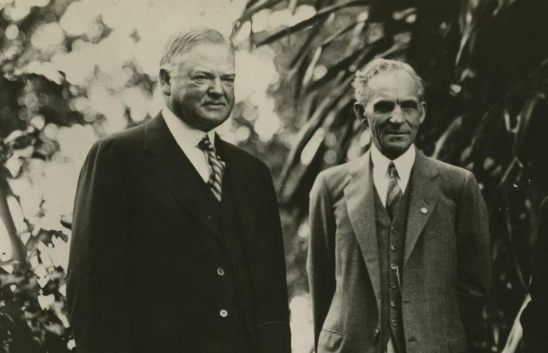Free Trade
"A free trade agreement is a pact between two or more nations to reduce barriers to imports and exports among them. Under a free trade policy, goods and services can be bought and sold across international borders with little or no government tariffs, quotas, subsidies, or prohibitions to inhibit their exchange."
- Investopedia
While protectionism dominated American politics, economists, Democrats, and foreign countries were desperate to stop the new tariff bill. Many believed that the new tariff leads to an economic disaster and strain relations between the United States and its trading partners.

The 1028 Economists
Seeing the potential consequences of the new tariff bill, 1028 economists across the United States formed a petition to prevent Hoover from signing it.
"We are convinced that increased restrictive duties would be a mistake. They would... raise the cost of living... reduce the possibility of exporting to them [foreign countries]... and plainly invite other nations to compete with us in raising further barriers to trade."
- New York Times, 1930
In addition to the economists, several industrialists and bankers also saw the terrible consequences of the new tariff. Both Henry Ford and Thomas Lamont spoke with Hoover to convince him to reject the bill.
“I almost went down on my knees to beg Herbert Hoover to veto the asinine Hawley-Smoot tariff”
- Thomas W. Lamont
“Henry Ford spent an evening at the White House pleading for a veto of what he called an economic stupidity."
- Time, 1985

Democrats
Democrats, in general, did not favor tariffs and supported economic liberalism.
“Government should interfere as little as possible with business. But if it does interfere with one phase of economic life, be it by tariff... it is bad logic, bad economics, and an abondonment of government resposibility to say that as to agricultural alone the government should not aid.”
- Alfred E. Smith, 1928
Foreign Countries
Many trading partners, including Canada and Spain, asked President Hoover to not sign the tariff bill. These protests were justifiable since tariffs would hurt their domestic industries and only benefit American industries.
Sang Hyun Chun, Senior Division, Individual Website